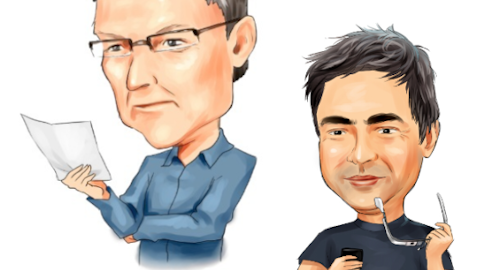Apple Inc. (NASDAQ:AAPL) was apparently able to lay claim to simple design patents before a jury in northern California a couple weeks ago, winning a $1.05 billion award (appeal pending) against Samsung Electronics Co. Ltd. But should how an electronic device look and feel be patented, or be allowed to be claimed as a patent? Is design truly innovative and unique? Is the U.S. intellectual property system to blame for this claim of a patented design?
That line of thought is the main topic of a recent article, which discussed whether copying something can actually be, or lead, to, a form of innovation and creativity down the road. The authors write, “Imitation is at the center of an enormous amount of innovation. … How can copying be beneficial? Because it can enable as well as inhibit innovation. … In fact, innovation is often an incremental, collective and competitive process. And the ability to build on existing creative work — to tweak and refine it — is critical to the creation of new and better things.”
The authors, Kal Raustiala and Christopher Sprigman, are professors who wrote a book called, “The Knockoff Economy,” which touts the value of imitation – even noting that Apple Inc. (NASDAQ:AAPL) was an imitator itself when it got started. The authors note an anecdote in which Steve Jobs had visited Xerox one day and took the ideas of a prototype computer that Xerox was working on, and turned those ideas into the platform from which Apple Inc. (NASDAQ:AAPL) was built.
The authors of the article cite several areas where copying (as Samsung was accused of doing) is actually encouraged, and led to more creativity in those industries. This piece did open up the thought as to whether the vigorous defense of design patents by Apple Inc. (NASDAQ:AAPL) would cut down or stall innovation, whereas some copying might actually improve innovation and create more competition and be better for consumers.
Maybe it’s little wonder that a company would actually want to encourage more competition. But the article does consider that maybe Samsung was onto something, and perhaps could have had the opportunity to further develop Apple Inc. (NASDAQ:AAP:) “innovations,” and end up making better devices. Maybe we’d never know that, now.
In the meantime, loyal investors in Apple Inc. (NASDAQ:AAPL) stock, such as hedge-fund manager Julian Robertson of Tiger Management, may have a chance to see a monopoly of innovation come out of Cupertino. Robertson had a $59 million investment in Apple at the end of June, which has likely risen since then due to Apple’s court win.






